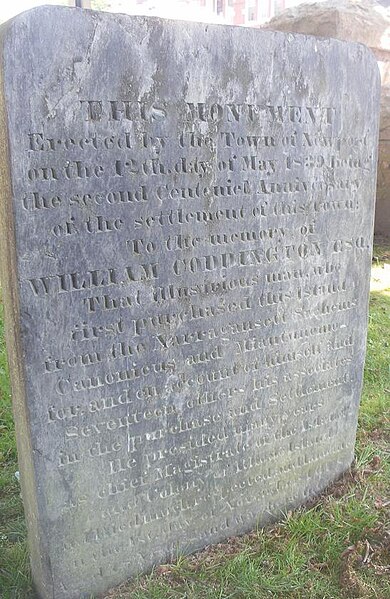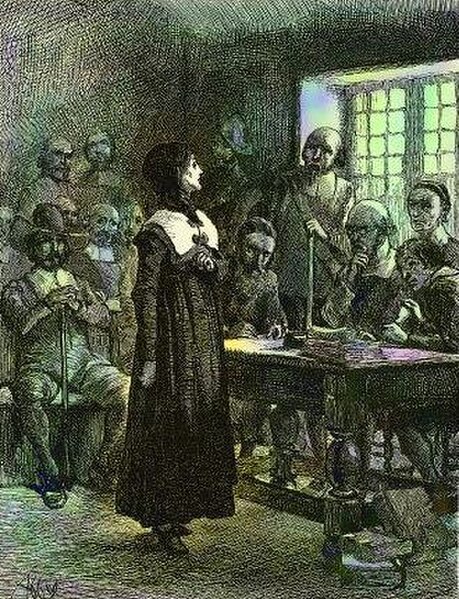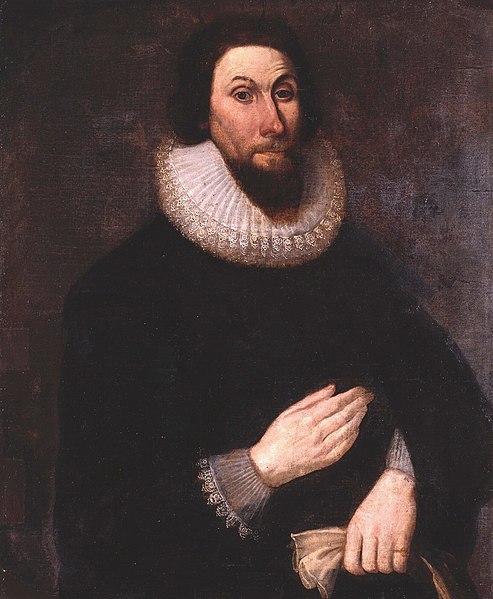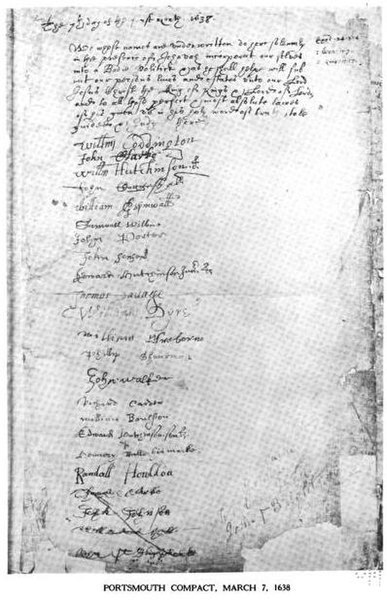John Easton (1624–1705) was a political leader in the Colony of Rhode Island and Providence Plantations, devoting decades to public service before eventually becoming governor of the colony. Born in Hampshire, England, he sailed to New England with his widowed father and older brother, settling in Ipswich and Newbury in the Massachusetts Bay Colony. As a supporter of the dissident ministers John Wheelwright and Anne Hutchinson during the Antinomian Controversy, his father was exiled, and settled in Portsmouth on Aquidneck Island with many other Hutchinson supporters. Here there was discord among the leaders of the settlement, and his father followed William Coddington to the south end of the island where they established the town of Newport. The younger Easton remained in Newport the remainder of his life, where he became involved in civil affairs before the age of 30.
Sir William Phips attempted to take control of all Rhode Island's military forces during Easton's tenure as governor.
Grave slab for Easton, Coddington Cemetery, Newport
William Coddington was an early magistrate of the Massachusetts Bay Colony and later of the Colony of Rhode Island and Providence Plantations. He served as the judge of Portsmouth and Newport in that colony, governor of Portsmouth and Newport, deputy governor of the four-town colony, and then governor of the entire colony. Coddington was born and raised in Lincolnshire, England. He accompanied the Winthrop Fleet on its voyage to New England in 1630, becoming an early leader in Boston. There he built the first brick house and became heavily involved in the local government as an assistant magistrate, treasurer, and deputy.
Memorial marker for William Coddington dedicated on 200th anniversary of Newport founding
Anne Hutchinson was likely given legal advice by Coddington during the Antinomian Controversy
John Winthrop presided over Hutchinson's trial in 1637 as both accuser and judge.
Portsmouth Compact with Coddington's signature first on the list






